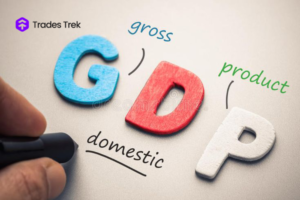Investing in the Nigerian stock market can be both exciting and daunting due to the unpredictable nature of stock prices.
Certain factors affect stock market prices, leading to fluctuations in the price of a single share which cause significant stress and uncertainty for beginner and seasoned investors alike.
Get access to real-time stock market prices on the Trades Trek Stock-Trading Simulator. The Simulator is available for download on the Google Play Store. Upon successful signup, you get 500,000NGN in virtual cash to begin your investment journey.
In this blog post, we will take you through some factors that affect the price of a single share on the Nigerian stock market. Let’s go…
Demand and Supply
The most fundamental factor affecting stock market prices is the balance between demand and supply. When there are more buyers than sellers for a particular stock, the cost of a stock tends to rise because the demand exceeds the available supply. Conversely, when there are more sellers than buyers, the stock price usually falls due to excess supply.
In practical terms, imagine a Nigerian tech company that has just launched a groundbreaking new product. The excitement and anticipated success of the product can increase demand for the company’s shares, which drives up the stock value as more investors want to buy in. On the other hand, if the company faces a major setback or product failure, the stock might see a rush of sell-offs, leading to a decrease in price.
Media Influence
News and media play a crucial role in influencing stock market prices. Positive news about a company, such as strong earnings reports, new product launches, or favorable economic data, can boost investor confidence and lead to an increase in stock demand which will in turn result in higher stock prices. Conversely, negative news, like scandals, poor financial performance, or political instability, can cause stock prices to drop.
For instance, consider a Nigerian oil company that announces a significant increase in its oil reserves. This positive news can attract new investors, leading to increasing stock demand and a surge in the company’s stock price. Conversely, if the same company is involved in an environmental scandal, the negative media coverage can lead to a decline in stock prices as investors lose confidence.
Economic Performance
The overall performance of Nigeria’s economy is another factor affecting stock market prices. When the economy is thriving, companies tend to perform better, leading to higher stock prices. Indicators like the Gross Domestic Product (GDP) provide insights into economic health. A growing economy typically means higher consumer spending, better corporate earnings, and increased investor confidence. Conversely, during economic downturns, consumer spending drops, corporate profits fall, and stock prices tend to decline as investors become more risk-averse.
Investor Sentiment
Investor sentiment, or the general mood of investors toward the market, can drive stock prices. Positive sentiment can lead to increased buying and higher stock prices, while negative sentiment can result in selling and lower prices. In Nigeria, investor confidence can be swayed by factors such as political stability, regulatory changes, and global economic conditions. For example, a stable political climate and favorable business regulations can boost investor sentiment, leading to higher stock prices as confidence in the market grows.
Company’s Financial Performance
A company’s financial health is a direct indicator of its stock price. Strong earnings, revenue growth, and robust financial reports can attract new investors and increase demand for company stocks driving up the stock price. Investors look for signs of financial stability and growth potential when deciding where to put their money.
For instance, if a Nigerian bank reports a significant increase in quarterly profits, its stock price is likely to rise as investors seek to benefit from the company’s success. Conversely, if the bank reports a loss or fails to meet earnings expectations, the stock price may decline as investors lose confidence in its financial health.
Conclusion
Stock prices on the Nigeria stock market, as in any stock market, are influenced by several factors. These include the basic economic principles of demand and supply, the impact of media and news, the overall economic performance of the country, investor sentiment, and the financial health of individual companies. By gaining a deeper insight into these elements, investors can make more informed decisions, reduce risk exposure, and increase their chances of market success.
Download the Trades Trek Stock-Trading Simulator and get access to real-time stock market prices. The Simulator is available for download on the Google Play Store. Upon successful signup, you get 500,000NGN in virtual cash to begin your investment journey.




